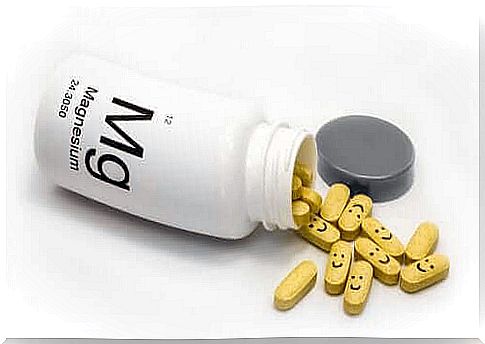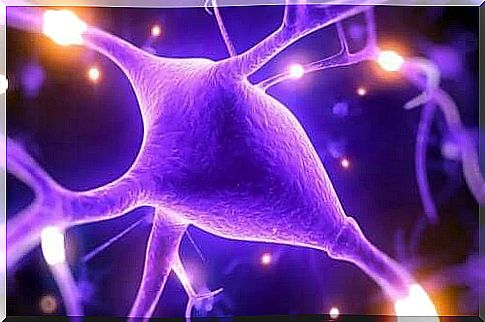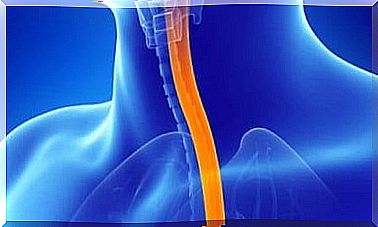Hypermagnesaemia: Too High Level Of Magnesium

Hypermagnesaemia is a condition that can have serious health consequences and can even lead to death. It usually affects patients suffering from kidney failure, although it can also occur in people who take too much magnesium in the form of dietary supplements or medications.
Hypermagnesaemia occurs when the concentration of magnesium in the blood increases significantly. As a standard, the concentration of this element in an average adult ranges from 1.5 to 2.5 mEq / L. Doctors will recognize that a person has this condition when laboratory tests show a concentration higher than the one presented earlier.
The presence of hypermagnesaemia means that there is a significant disturbance of the body’s electrolyte balance. Magnesium is one of the main electrolytes in the human body. Electrolytes are supposed to generate an electric charge when dissolving in a liquid. However, most of the magnesium in our bodies does not have an electronic charge.
It is worth noting that hypermagnesaemia is a rare disease, which in most cases is associated with kidney disease. Thus, it most often affects people suffering from kidney failure.
Hypermagnesaemia and the role of magnesium in the body
Magnesium is a very important ingredient that every creature needs. It is a mineral that plays a key role in the organisms of all living creatures. Besides, it is present in all cells of the body. Responsible for maintaining homeostasis and their proper functioning.

More than 300 enzymes present in the human body require magnesium to perform their key functions. Cells regulate the flow of magnesium. It is from their level that magnesium activates and manages various biochemical processes in the body.
The proper level of magnesium in the body plays a key role in human health. Thus, any deficiency or excess of this element can cause heart and nervous system diseases. For this reason, hypermagnesaemia is a medical condition that must be taken seriously as it can have many negative consequences.
Hypermagnesaemia and its causes
The kidneys are the organs that excrete magnesium. Therefore, any unusual changes or damage in them can lead to the development of hypermagnesaemia. The main causes of this condition are:
- Kidney failure – This is the most common cause of hypermagnesaemia because it prevents the proper excretion of magnesium.
- Abuse of certain substances, such as laxatives, antacids, or dietary supplements.
- Certain chemotherapy treatments that can lead to the development of acute tumor lysis syndrome. This, in turn, triggers an increase in magnesium levels.
- Serious, extensive burns.
- Other chronic diseases such as hypothyroidism and Addison’s disease.
Symptoms and diagnosis
Your doctor must do blood tests to detect hypermagnesaemia. When the magnesium level is only slightly elevated, there are usually no obvious symptoms. However, if your magnesium levels keep increasing, you will eventually experience the following problems:

- Muscle weakness
- Vomiting and nausea
- Headaches,
- Irregular or slow heartbeat
- A warm and red face
- Somnolence,
- Dizziness, fainting and / or slow reflexes
- Slow breathing.
Muscle paralysis
When a person suffering from hypermagnesaemia falls asleep and cannot wake them, and also has trouble moving their arms and legs, you should call an ambulance immediately. Also, you need to see a doctor as soon as possible if she is breathing slowly and has a slow heartbeat . Do the same if you notice drowsiness and muscle weakness.
Hypermagnesaemia and treatment
Treatment for high blood levels of magnesium depends entirely on its causes. People suffering from renal failure, the group most often suffering from hypermagnesaemia, must be under strict medical supervision. They usually require dialysis.
Dialysis is a method that helps the kidneys cleanse the blood of certain chemicals and waste. They are mainly used when the kidneys are unable to fulfill this role on their own. In some cases, dialysis is not needed, and medication is sufficient to improve the patient’s health.
Doctors usually prescribe calcium gluconate or diuretics to treat this condition. Patients must strictly adhere to the prescribed doses. In addition, they should not take laxatives or antacids that contain magnesium.
You must always consult your doctor in matters related to your medications, even if you can buy the preparations without a prescription. Also remember that you should only take magnesium supplements under medical supervision. And of course, always keep them out of the reach of children.









